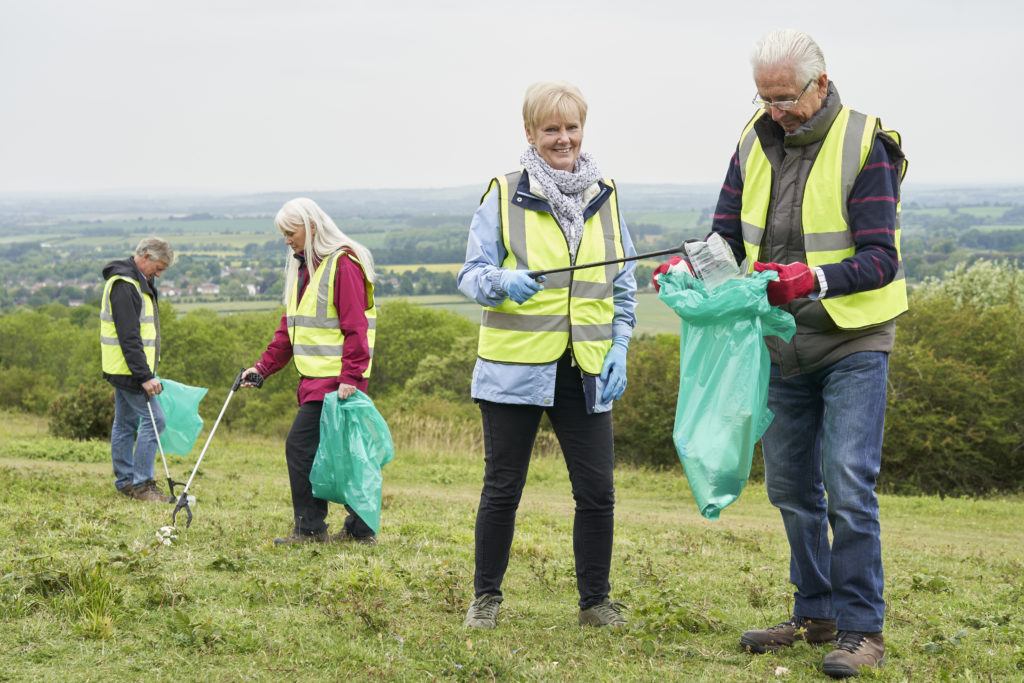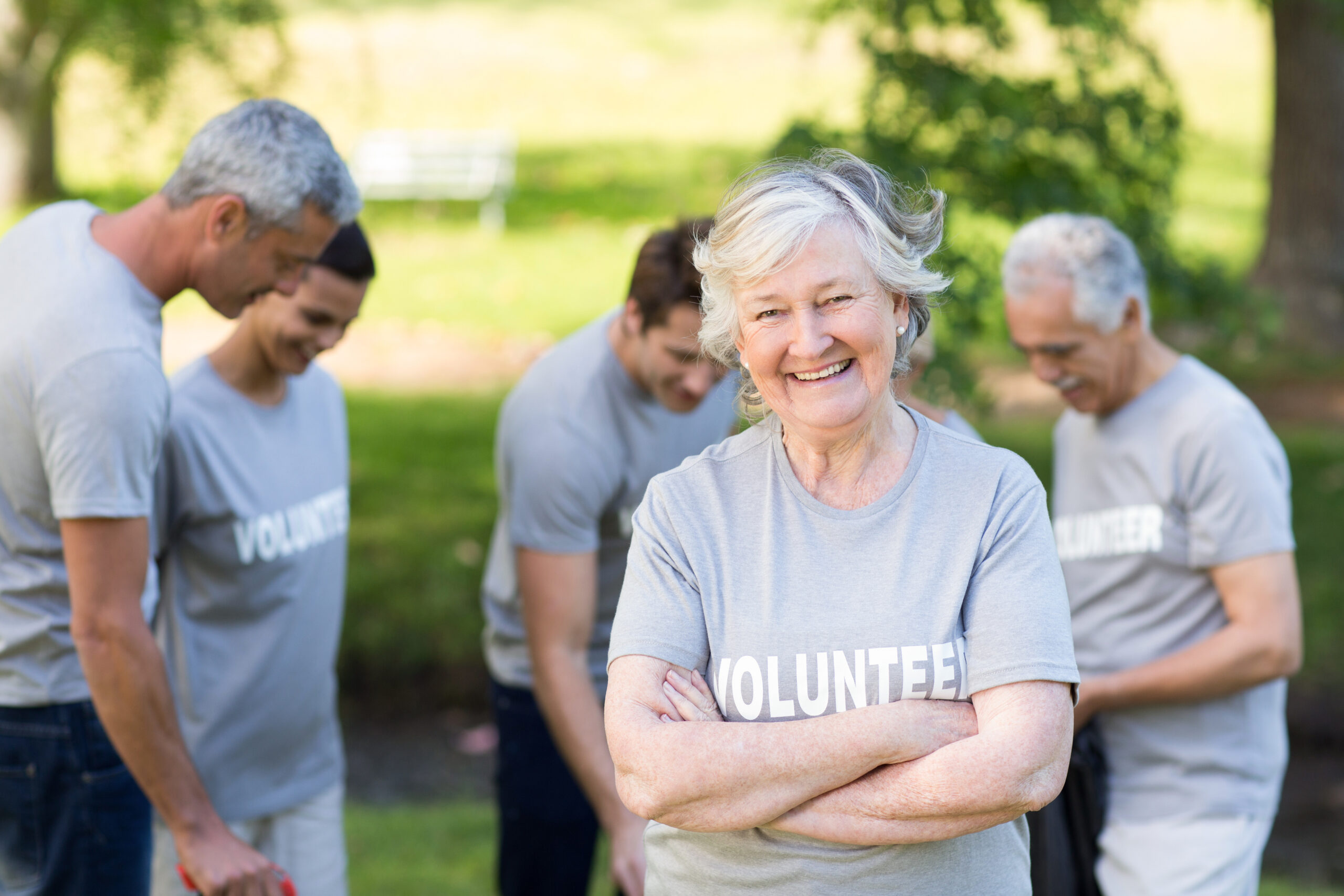A sense of purpose is a universal human drive. When people get older, retire from their jobs, and have adult children who have left the nest, it can be challenging to live a purposeful life. Some people may find a greater purpose in giving back to their community through volunteer work. Volunteering can have other benefits, not just for seniors but for those who are on the receiving end.
Retired empty-nesters may have a higher risk of depression due to a lack of purpose or feel like they lack value without a job or active parenting to fill their days. Volunteering can provide an important sense of purpose that many elderly people lack.
Why is a Sense of Purpose Important?
A sense of purpose gives us clearer reasons for what we do or want to do. Many people feel a strong sense of purpose as a parent or in their careers. But in your Golden Years, the kids are grown, you've retired, and now you may find that you lack interest in things you used to enjoy, or that it's harder to get up and tackle the day.
The science of how we age seems to back up the importance of a sense of purpose. Many studies have demonstrated a link between a stronger sense of purpose and meaning to a lower risk of developing dementia or other impairment and cardiovascular problems. And, a new study indicates that a strong sense of purpose could increase longevity and slow aging. Seniors with a sense of purpose have higher levels of physical function, including faster walking speeds and stronger grips (two factors used to measure how fast someone is aging).
Seniors who report having a strong sense of purpose also are happier, tend to make healthier choices and lead healthier lives and take better care of themselves. Many of these individuals are also more engaged in their lives and with others and that, in turn, preserves cognitive function and an individual's overall well-being.
Volunteering Bridges the Generation Gap
Volunteering is one place where people of all ages have something in common. From teens volunteering with their youth organization to seniors, families, singles, and everyone in between, volunteer organizations bring people together with a shared passion.
Some organizations encourage families to volunteer together, which can be a great bonding experience for grandparents and grandchildren. Preparing small meal bags for a soup kitchen or helping serve a holiday dinner is something just about anyone can do.
Some seniors may feel like the world is passing them by and look to volunteer opportunities to feel more of a connection with the younger generation. Working with younger people, such as tutoring after school or reading to children at a local school or library, may ease loneliness for seniors missing grandchildren far away.
Building connections with younger people through volunteer service can help seniors feel more invigorated and even have more to talk to their grandchildren about – or at least be current with the latest slang!
Provides a Sense of Capability

Some volunteer roles are opportunities for older adults to learn new tasks and stretch their capabilities. Many organizations use technology as part of their operations, and learning more about the operating systems in a non-profit agency may help seniors improve their own skills. Or, perhaps they can develop other types of skills that they wanted to hone but never had a chance to.
Completing volunteer tasks successfully gives many older adults the confidence in themselves that they need to complete other challenges they face. Some people may have mobility challenges, but the sense of capability they gain from volunteering can help them feel more confident to handle other tasks independently.
Reduces Loneliness
Feeling loneliness and isolation is common for many elderly adults. Many seniors live alone and opt to move into an assisted living home or retirement community to meet new people and live among others. Even seniors who live in a group setting may feel lonely, especially if they are new to the community. Volunteer work gives seniors an opportunity to meet other people who share a common interest, whether it's animals, teaching, or helping the homeless.
Participating in community events often gives volunteers a sense of pride and engagement in the town they live in. People who feel more connected with their community may feel less isolated and lonely. Knowing how their volunteer contribution makes a difference in the community or organization can help seniors feel important and still valuable.
Volunteering isn't just about the shared tasks. Often, volunteers are celebrated by the organization, too, sometimes with a special luncheon or party. Or, there may be impromptu opportunities for seniors to socialize with other volunteers after their shift or event is over, such as having coffee or drinks afterward.
Promotes Physical Activity and Independence
Many volunteer tasks require some sort of physical activity, which can help seniors preserve their physical capabilities. However, physical limitations shouldn't limit some seniors from engaging in volunteer work. Some tasks can be modified for people who cannot stand for long periods of time or have trouble walking.
Other kinds of tasks can be great exercise for older people. Walking dogs at an animal shelter, for example, may be a good fit for an active older adult, while those who cannot stand or walk much may be better at sitting and reading to children.
Other skills, like fine motor movements and balance, may be used for many tasks, too, and regularly participating in different activities can help preserve mobility and dexterity.
Do You Wish to Incorporate Volunteering Into Your Life?
If you're seeking volunteer opportunities in your area, there may be more resources in your community than you realize. The Senior Living Advisors at Assisted Living Locators can help older adults with the right fit for long-term living in the right senior community, including communities that have transportation to a resident's volunteer job or have on-site volunteer opportunities.





